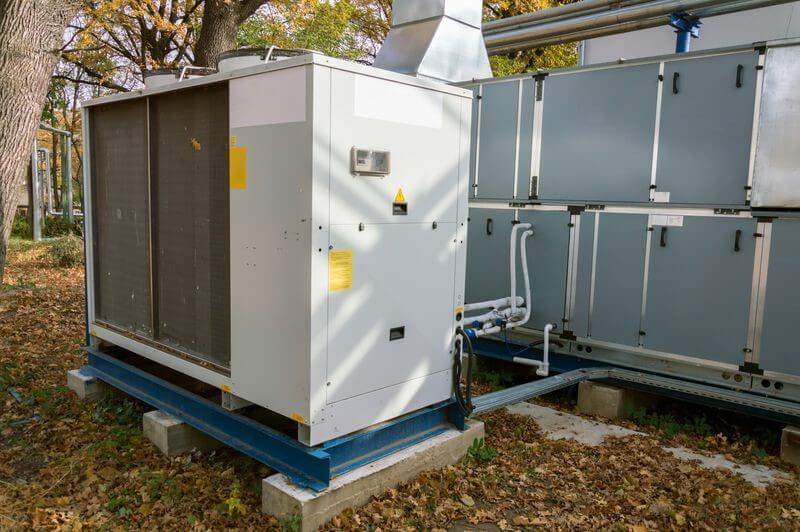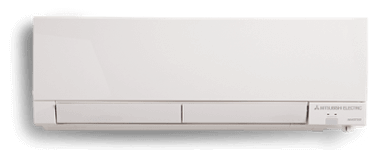WHY YOU DON’T WANT AN OVERSIZED AC
An oversized air conditioner is a bad idea. Here’s why.

When you invest in an oversized central air conditioner, you’re not making your home more comfortable. It’s more likely to become hotter and more humid. That’s because an oversized air conditioner:
- Won’t dehumidify your home properly
- Turns off and on constantly, leading to temperature fluctuation
- Will be louder than you want
- Will cost more up front and over time
Sure, you want your climate under control at home. The air in your home the summer should be cool and dry, and you should feel comfortable. After all, that’s what you’re paying for when you buy a new AC system!
But, there’s a limit to how big you should go.
Models made for homes twice the size. Units that broke down after just a few years. Homeowners who were hot, sticky, and miserable every summer and couldn’t figure out why.
And, not all of them wanted to know the answer: Their cooling system was too powerful for their home.
Oversized Air Conditioners Won’t Dehumidify Your Home
But, an oversized air conditioner won’t do the job correctly.
When an air conditioner starts its cycle, it draws warm, humid air from the house. The water vapor in it condenses, and the system gets rid of that liquid.
Then, it removes the heat from the air and sends it back in, cool and dry. Unless, of course, the AC is too big.
In that case, your house cools too quickly. Yes, there’s such a thing.
Instead of staying on for 10 or 15 minutes per cycle, it gets the job done in maybe five. Then it turns back off.
The problem is, it didn’t stay on long enough to treat the humidity. So, even though the temperature dropped, it doesn’t feel colder because of the moisture still in the air.
And, that doesn’t just make you feel sticky. It can also affect your health.
Humidity and seasonal allergies
Seasonal allergy sufferers notice an uptick in symptoms. Now, you’ve got your windows closed all the time. But, all those allergens aren’t getting filtered out through your HVAC system.
And, dirt, dust, and pollen literally hang in the air. Those tiny particles attach to the moisture and stick around.
Mold also becomes a problem. All you need for mold, mildew, or fungus to grow is a dark, moist place. Behind furniture or inside cabinets and draws are dark spots. Add excess water vapor, and you’ve got a breeding ground.
The Noise Factor
Let’s take a step back and look at a much less severe problem: noise.
On the whole, air conditioners aren’t exactly quiet. Anyone who’s tried to watch TV while running an old through-the-wall unit knows that.
Central systems are a little quieter, but they still make a good deal of noise. And, the stronger they are, the louder they are.
The noise usually doesn’t get out of control when your AC is proportional to your home. But, if the system’s too big, it’s also too loud. The air pressure is stronger than it needs to be, so you more of a “woosh” sound.
Ductless mini splits for whisper-quiet cooling

These use a slightly different process than traditional AC’s. And, one of the benefits (besides lower energy bills) is their whisper-quiet operation.
Your average central system produces sounds from 59 to 76 decibels. That range covers the loudness of people talking in a restaurant to a car going by at 65 mph.
A ductless system produces only around 20 decibels. And, that’s right near the air handler. If you’re directly under it, you’ll hear something only as loud as leaves rustling.
From across the room, they’re virtually silent.
More repair costs and premature breakdowns
Maybe someone sold you on a unit that’s more powerful that you need. It’s expensive, you think, but it’ll get the job done.
Well, as we reviewed already, it really won’t. And, to make matters worse, it will cost you even more in repairs and on an early replacement.
The reason is mostly because of something we mentioned already: short-cycling.
A right-sized AC will run for about 15 minutes, two or three times an hour.
But, an oversized unit blasts a lot of cool air at once, which makes the thermostat drop. But it doesn’t dehumidify or circulate all that much air.
As a result, it turns on again in a few minutes. Then a few after that. And so on.
Short cycling
HVAC systems use more energy starting up than once they’re running. So, your bills go up because it turns on more often.
Meanwhile, that’s also more wear and tear on the system. It’s like highway miles versus stop-and-go city miles on your car.
It’s frustrating for homeowners: You pay more than you should up front. Then, more than you should on repairs, and finally more than you should on yet another new cooling system.
How do I choose the right size air conditioner?
The good news is that getting the right-sized air conditioner is not a guessing game. You just need the right contractor for the job.
For instance, Compass Heating and Air Conditioning Inc. starts with an intense load calculation before we even think about sitting down and talking about models, pricing, and financing.
A proper load calculation for a new central air conditioner takes into account:
- The size of your home
- The dimensions of the rooms
- The layout and airflow of the house
- Windows, doors and other places air escapes
- How much (or little) insulation is in the home
All these factors weigh in heavily when deciding how powerful an air conditioner you need.
By taking these all into account, we make sure you’re making the right investment. It’s important to find the model and size that will bring you comfort for years to come without costing any more than it should.
Air Conditioning And Furnace Installation In Downers Grove, IL
Compass Heating and Air Conditioning Inc. is the trusted name for expert, reliable, air conditioning and furnace installation in Downers Grove, IL done right the first time. We’ve served Fox River Valley homes and businesses for more than a decade. Are you looking for a new central air conditioning unit? Call at (630) 504-8688 or click here to schedule a free consultation online.


